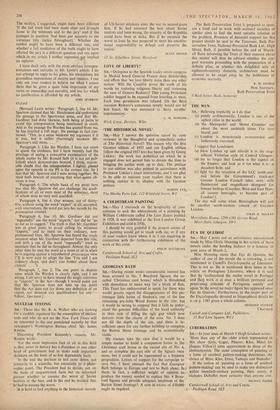NUCLEAR TESTING
SIR,—Those like Mr. R. A. Walker who are looking fOr a credible argument for the resumption of nuclear tests and who do not see the New York Times will be interested in the one postulated recently by that newspaper's Washington Bureau chief, Mr. James Reston.
Discussing President Kennedy's reasons, Mr. Reston wrote: 'For the most impressive fact of all in this field is that, never in history has a President or any other head of government had to make such important decisions on the basis of so few dependable facts.
`In the end the decision to test came down, not • primarily to a scientific, but essentially to a philo- sophic point. The President had to decide, not on the basis of unquestioned facts but on informed guesses whether to assume the worst of Soviet motives or the best, and in the end he decided that he had to assume the worst.
'It is hard to find anything in the historical records
of US-Soviet relations since the war to second-guess him. If he had assumed the best about Soviet motives and been wrong, the security of the Republic could have been at stake, But if he assumed the worst at least he was prepared to meet his constitu- tional responsibility to defend and preserve the nation.'
PI. I ER BROWN 12 Si. Ethelbert Street, Hereford


































 Previous page
Previous page